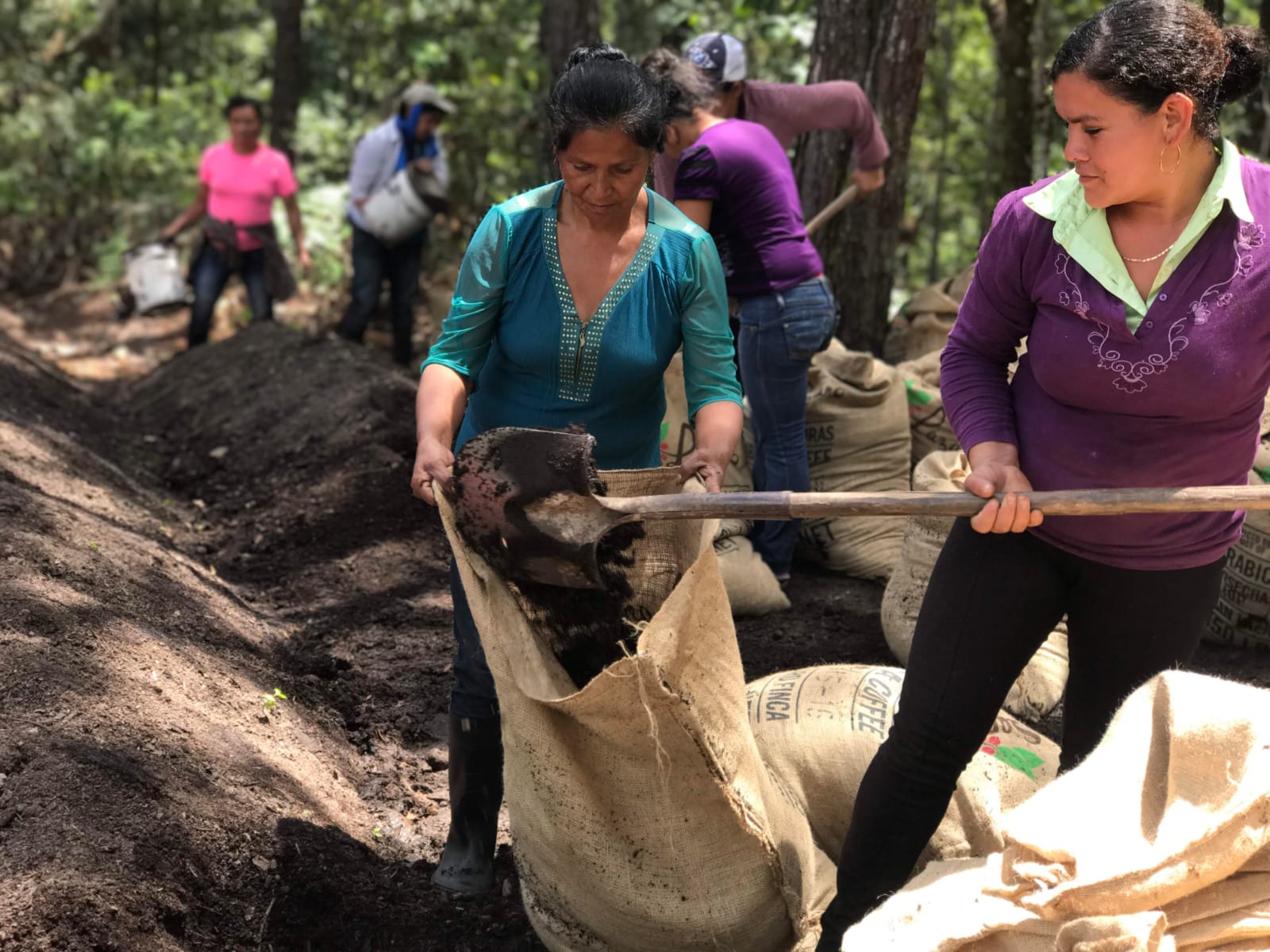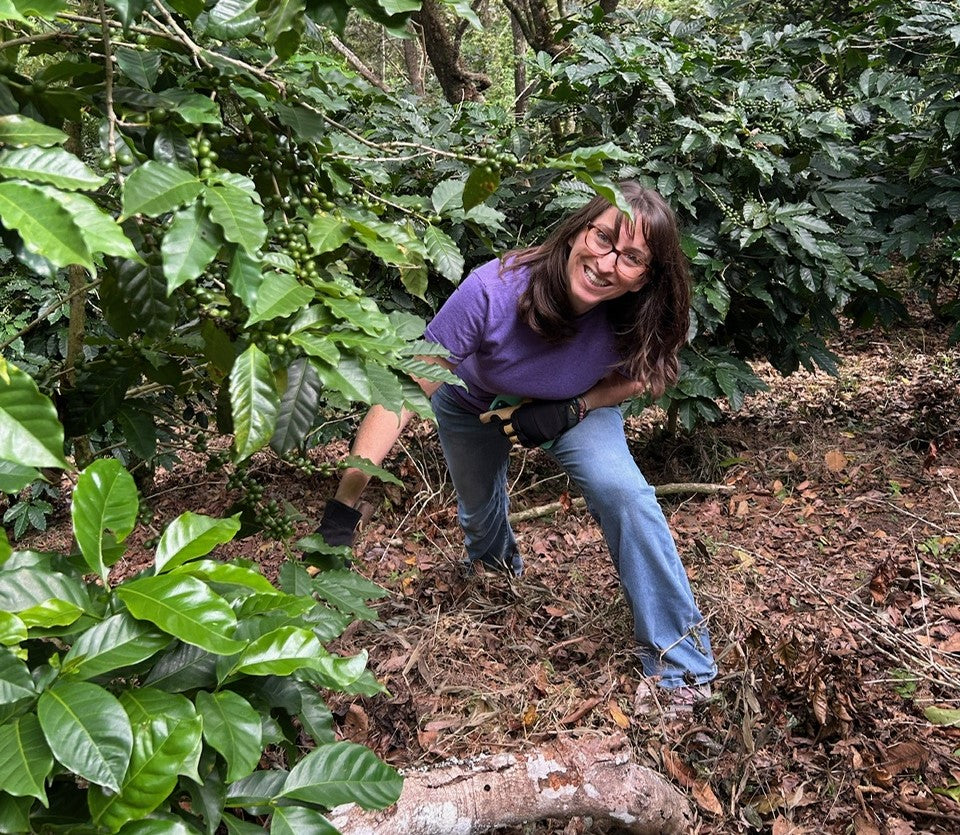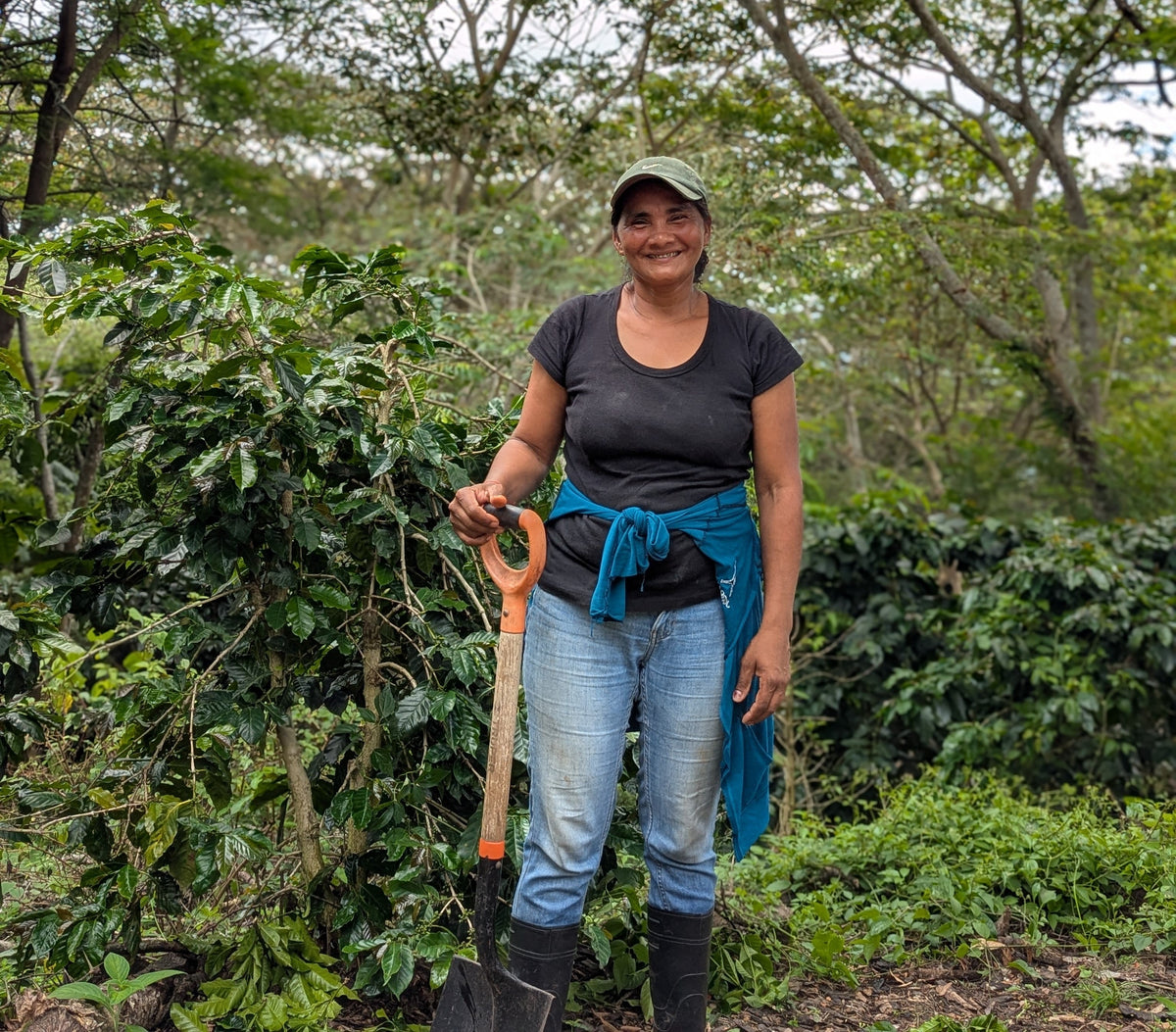
Trinidad's Job Creates a Ripple Effect for Her Six Daughters
Trinidad is the youngest of 13 children and one of only two siblings who had the opportunity to attend primary school. Her first major accomplishment in life came at age eight when she got her first pair of shoes! This milestone afforded her many more opportunities in the years to come.
Today Trinidad is the mother of six daughters, and her love for them motivates her powerfully. She began working at our coffee farm just over a year ago. She and her family had been going to church for seven years, but Trinidad says her new job has allowed her to grow deeper in relationship with the Lord.

She says that the positive, Christ-centered environment and the morning devotionals with her sisters at the farm are a gift from above, and she is absolutely certain that God opened the door of opportunity to make her a part of our team!

But Trinidad's new job hasn't just been life-changing for her; it has created a beautiful ripple effect for her daughters. Two of Trinidad's daughters are now members of the sewing team at Lazarus Artisan Goods, and her third daughter just graduated from our high school and will soon continue her education at university.
Because of her employment at San Lazaro Coffee, Trinidad is able to contribute financially to her daughters' studies - something that would have remained an unattainable dream only a few years ago. And what's more, due to our commitment to thriveable wages, Trinidad makes more income than her husband, who is a foreman on another coffee farm in the area.

We tell stories like Trinidad's to remind you that your morning coffee can be SO much more than a delicious jolt of caffeine to get your day started. It can empower women in Honduras to reach their dreams - and it can change lives for generations to come.
Thank you for creating positive, empowering work for so many deserving people like Trinidad and her daughters.
Leave a comment
Also in San Lázaro Coffee Blog

From Waiting to Thriving
In the small village of Jayacayan, where job opportunities are scarce and most women are expected to stay at home, Nancy Mondragón has learned that hope can be planted like a seed. At 28 years old, she lives with her husband, their little girl, and her in-laws in a modest home where every bit of income matters.

Rebecca's Day on the Farm Confirms What Makes Us Different
I recently had the privilege of traveling to Honduras with a group from my church. One morning, we volunteered on the San Lázaro coffee farm. It was only three or four hours—hardly a full day—but those hours changed how I’ll look at my morning coffee forever.

The Courage of Starting Over
When life gave Sandra Hernández every reason to give up, she chose something else: courage. She didn’t wait for a rescue. She didn’t ask for pity. When hardship shattered the life she knew, she took her youngest daughter by the hand, left everything behind, and decided to begin again — trusting that Christ would walk with her every step of the way.

